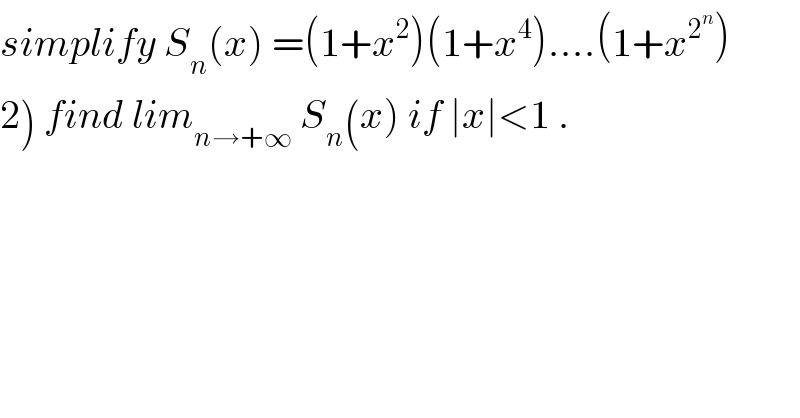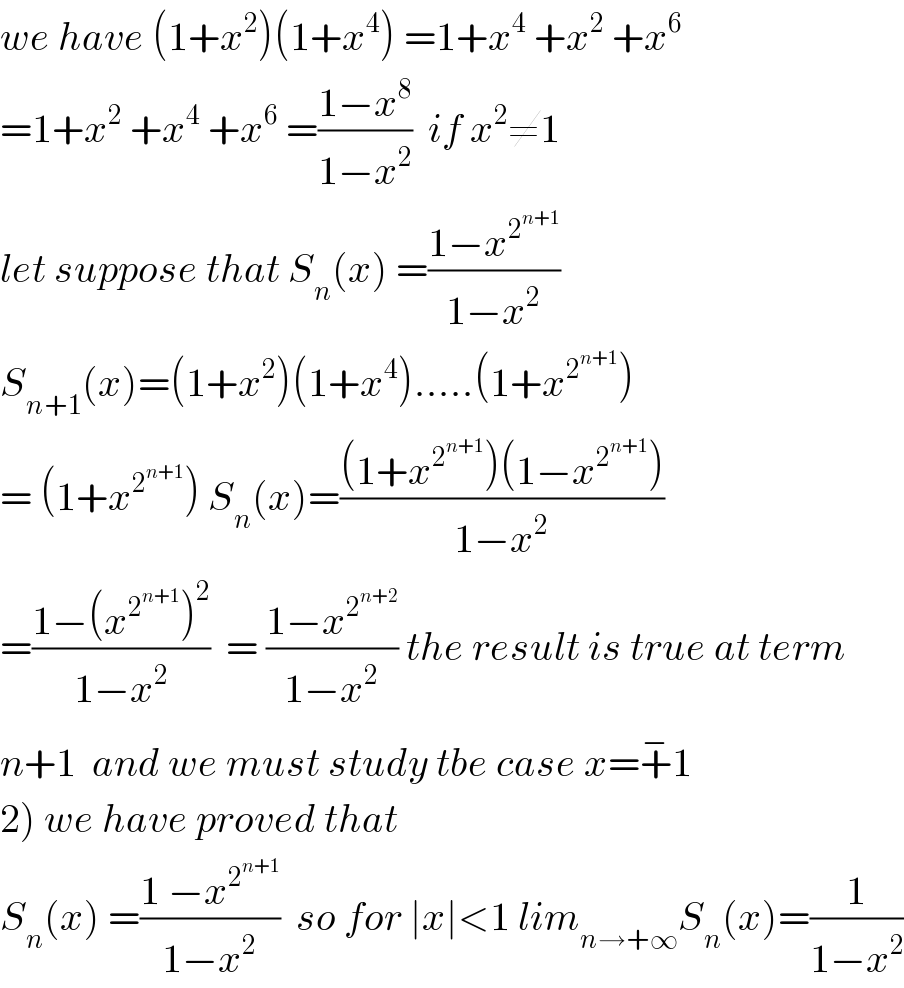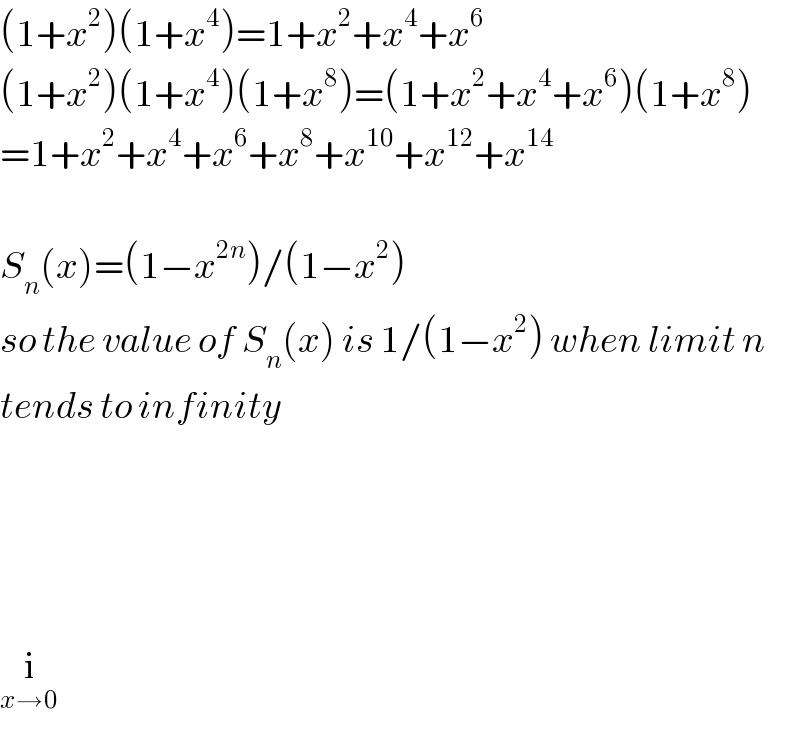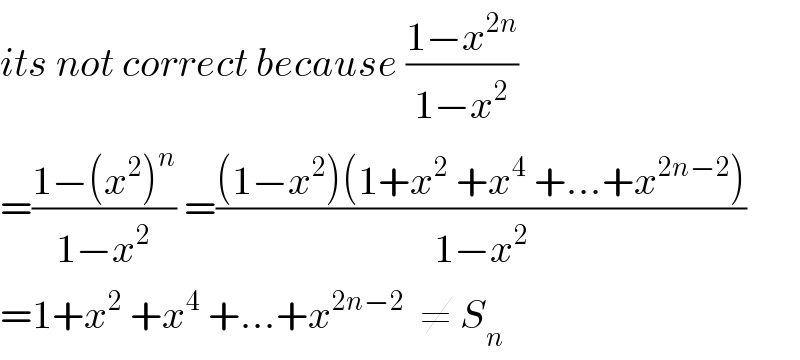
Question and Answers Forum
Previous in Relation and Functions Next in Relation and Functions
Question Number 33719 by prof Abdo imad last updated on 22/Apr/18

Commented byprof Abdo imad last updated on 23/Apr/18

Answered by tanmay.chaudhury50@gmail.com last updated on 22/Apr/18

Commented byprof Abdo imad last updated on 22/Apr/18

